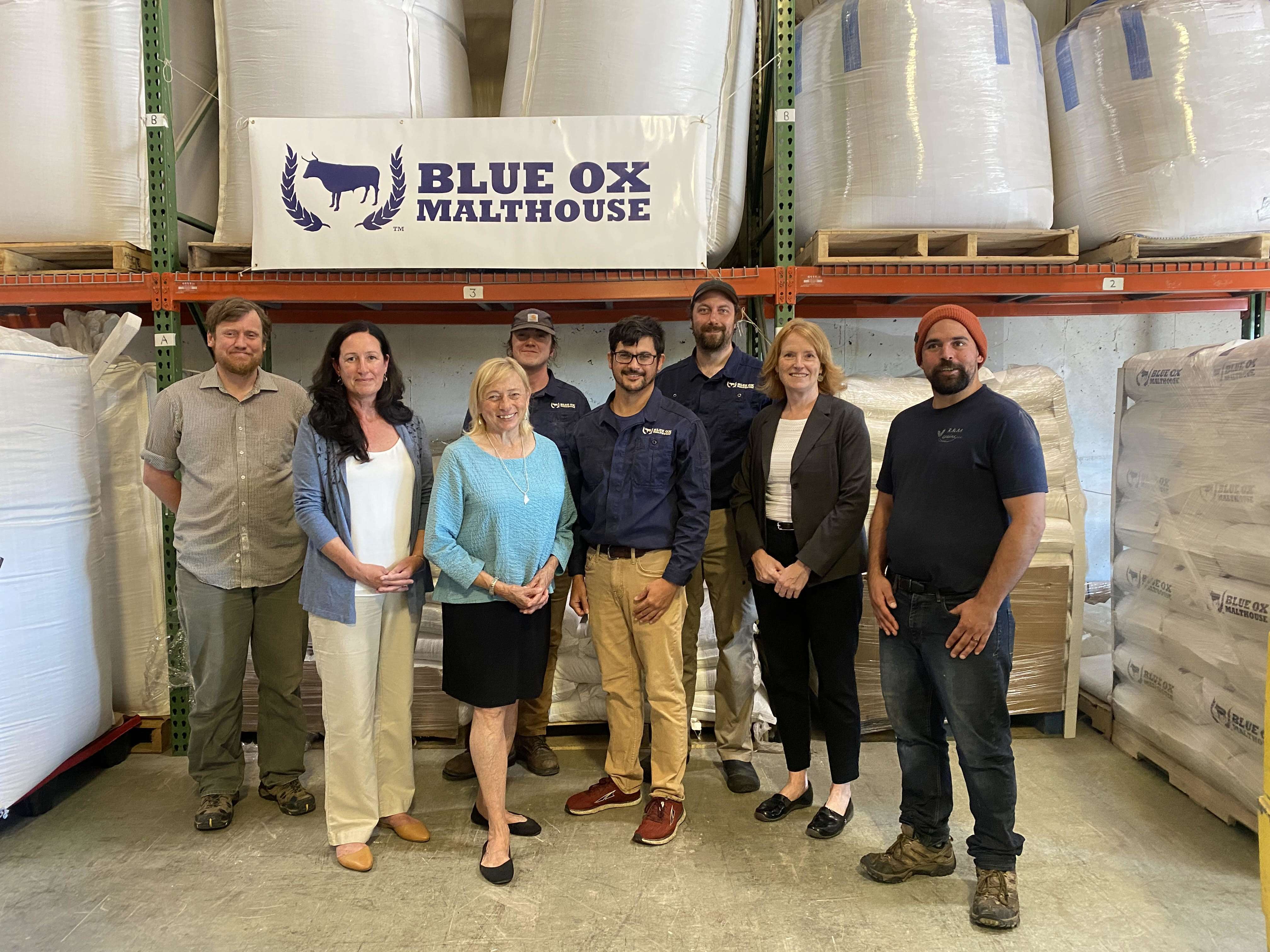
State awards $20M to farmers, food processors for infrastructure improvements
 COURTESY / AURORA MILLS & FARM
Aurora Mills & Farm in Linneus was among 64 farms and food processors recently awarded nearly $20 million in grants by the state. The Linneus operation’s founder, Matt Williams, and his daughter Sara are seen here in 2021.
COURTESY / AURORA MILLS & FARM
Aurora Mills & Farm in Linneus was among 64 farms and food processors recently awarded nearly $20 million in grants by the state. The Linneus operation’s founder, Matt Williams, and his daughter Sara are seen here in 2021.
Nearly $20 million in state grants will go to 64 farms and food processors to address infrastructure needs with an eye toward expanding in-state production.
The awards ranged from $41,669 to $500,000, with an average of $301,217, according to a news release, and were distributed across all 16 counties.
“The future of Maine agriculture is dependent upon significant investment in infrastructure,” said Julie Ann Smith, executive director of the Maine Farm Bureau Association. “Without substantial increases in processing facilities and capacity, the number of farms in Maine will continue to decline, and more food will be imported from out-of-state and internationally.”
The awards reflect the spectrum of Maine farms and food businesses of various scales and sizes, production methods and product categories, including dairy, grain, vegetable, fruit, meat and poultry.
The goal is to help farmers increase the supply of Maine-grown food, meet growing demand, and create and sustain jobs.
The grants were awarded through the Agricultural Infrastructure Investment Program administered through the Department of Agriculture, Conservation and Forestry. The money will be used to support infrastructure needs, including harvesting, processing and manufacturing or packaging and handling equipment.
Gov. Janet Mills announced the grants at Blue Ox Malthouse in Lisbon.
Blue Ox, a grain processor and recipient of a $500,000 award, buys grain from farmers across Maine, processes it into malt, then sells that malt to breweries, distillers and other businesses across Maine. Blue Ox said it would use its grant to expand processing capacity.
“Our farmers and food processors have told us they can deliver Maine-grown food to more people if they can make upgrades and meaningful and strategic investments in their businesses,” said Mills. “With these grants through my Maine Jobs and Recovery Plan, we can deliver that help and they can deliver to all of us and the world over healthy food, all while creating jobs and strengthening our economy.”
The investment comes after farmers and food producers who were surveyed by the Department of Agriculture, Conservation and Forestry during the pandemic indicated that storage, processing, and packaging capacity investments were critically important to the strength of the agricultural community and the statewide economy.
The Agricultural Infrastructure Investment Program was highly competitive, attracting approximately 850 applications, with requests totaling nearly $180 million.

Maine is home to approximately 7,600 farms of all sizes, scales and agricultural practices. Before the pandemic, the aging infrastructure or lack of infrastructure hindered the ability of some of Maine’s farmers and food processors to meet a growing demand for local food and to serve markets outside Maine.
During the pandemic, many restaurants, schools and other institutions with food service programs have closed, eliminating some of the biggest wholesale buyers for farmers and food processors.
Tade Sullivan, executive director of the Maine Dairy Industry Association, said the funds are a long-awaited investment.
Hannah Carter, dean of University of Maine Cooperative Extension, said the money will have significant, immediate benefits and will increase capacity at local farms and agribusinesses.
The money comes through the Maine Jobs & Recovery plan, approved by the state Legislature, to invest nearly $1 billion in federal American Rescue Plan funds.













0 Comments